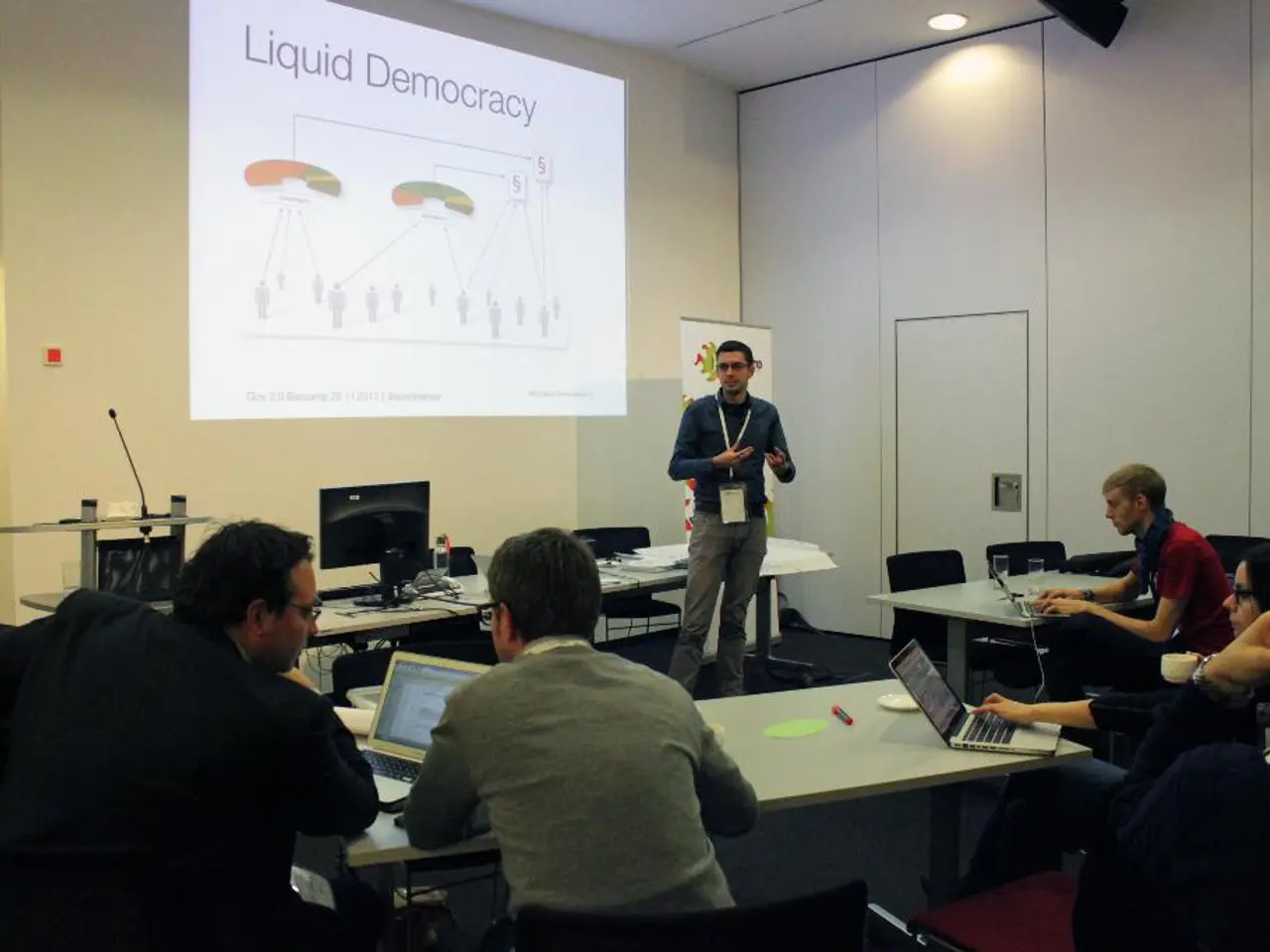Intelligence leader praised by Trump for reputable narrative
The CEO of Intel, Lip-Bu Tan, is facing intense scrutiny over allegations of extensive investments in Chinese companies, some with ties to the Chinese military. The controversy, which has placed Intel's leadership and the U.S. chip industry under the microscope, was sparked by a letter from Senator Tom Cotton to Intel's board of directors.
In the letter, Senator Cotton highlighted investigations and reports of export control violations. He alleged that Tan, through venture capital funds and holding companies he founded or operates, invested over $200 million in Chinese advanced manufacturing and chip firms between 2012 and December 2024. These investments, made via Walden International and other entities, have raised concerns due to possible risks to U.S. national security.
Tan, however, has affirmed his commitment to legal and ethical standards. He stated that he has built global relationships over more than 40 years in the industry and that the board supports him. He also noted engagement with the U.S. government to address these concerns.
The political reaction to these allegations has been significant. Former President Donald Trump publicly called for Tan's resignation due to these alleged conflicted ties to China, amplifying the controversy surrounding Tan’s leadership at Intel. Trump also praised Tan's success and rise.
Senator Tom Cotton also accused Tan, during his tenure at Cadence, of illegally selling products to a military university in China and transferring technology to a Chinese company.
In response to the accusations, Tan met with Donald Trump to discuss the matter. Trump expressed a desire to work closely with Intel and its CEO to strengthen U.S. leadership in technology and production.
Tan's actions as CEO of Intel have also come under scrutiny. He implemented cost-cutting measures and scrapped billion-dollar plans to build a factory in Magdeburg. However, no details have been given about any action Intel has taken or plans to take in response to the smartphone and AI chip market challenges.
Intel, once a dominant player in the chip industry, has since fallen behind in the smartphone and AI chip systems markets. Smartphone chips are now primarily produced by competitors such as Qualcomm and TSMC. In AI chip systems, Nvidia leads by a significant margin.
Senator Cotton demanded a response from Intel's board of directors by mid-August regarding the allegations against Lip-Bu Tan. Trump also demanded the immediate resignation of the Intel CEO.
As the situation continues to unfold, the future of Intel's leadership and its role in the U.S. chip industry remains uncertain.
[1] Senator Tom Cotton's letter to Intel's board of directors (Link) [2] Intel's response to Senator Cotton's letter (Link) [3] Investigations into Tan's investments in Chinese companies (Link) [4] Cadence Design Systems' guilty plea for violating U.S. export controls (Link)
Read also:
- Rapid Construction of Rajasthan's 435 Megawatt Solar Power Plant in Eight Months Reduces Carbon Dioxide Emissions by Over 700,000 Tons
- Tesla's Semi truck to ramp up mass production by 2026
- "New Maxxi-charge storage proves effective in replacing entire rooftop systems"
- Ford's Revisited Capri: A Contentious Revival for a Legendary Brand Name






